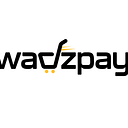Cryptocurrency fans must be familiar with the word “token”. Before deciding on which to buy, it is wise to confirm what type of token (or coin) the asset is classed as. However, there are thousands of tokens created and millions of people investing into them, yet the understanding of different token types out there is still quite limited.
In blockchain-based ecosystems, tokens are like the foods that nourish them and serve the end user as well. They can easily be traded and issued on a blockchain, without an intermediary or escrow service. In the end, tokens have lower management costs and issuance involved by facilitating collaboration across jurisdictions and markets at low costs.
Tokens can provide more efficient, transparent, and fair interactions between market participants. This could reduce fraud or corruption along the supply chain of services, goods, and financial transactions. As a result, there are lower costs of price discovery, increased liquidity, and less fragmented markets for such services and products, plus potentially enabling completely new value creation models.
As fungible digital assets, tokens provide unique features based on usage. Here are 5 types of tokens out there, but a token can fit into more than just one category:
1. Utility Tokens
A utility token is a backed up by a project that is designed to be used for a particular purpose. Commonly, utility tokens are used as a payment option for purchases within an application/platform. Users can buy utility token in order to receive some benefits, such as a service or profit.
At the beginning of the release, such as an ICO sale or pre-sale, investors are offered utility tokens at a lower price than the market rate. There is a hard cap on the maximum utility token availability, which can cause value to increase because of the supply/demand equation. Many investors who believe in a particular project will buy it in the hope that the price will go up because of the growing demand for the services and goods.
Most tokens that we find on cryptocurrency exchanges are basically utility tokens, as each one of them is intended to be used natively on a single platform, such as decentralized app (dApp). Of course, utility tokens are naturally speculative, so it is important to pay attention to use cases (the real utility of the token). WadzPay has its own utility token named WadzPay Token (WTK) that enables holders to make transactions at retail merchants or E-commerce using the WadzPay payment platform. WTK is rewarding both consumers and merchants, as well as driving good governance on the payment platform. A full suite of staking rewards and many other features will be available soon. You can purchase WTK, here. Read more about our Tokenomy.
2. Security Tokens
A security token has the same manner as traditional security, such as bonds, ownership positions in the company, and other ownership rights. Unlike utility tokens, they don’t have a utility attached to it. Of course, security tokens are subject to regulations by governments, federal laws, and rules of trading. However, Security Token Offering (STO) is a popular way of investing in a blockchain company.
Security tokens are divided into five big categories:
a. Equity tokens
Registered on a secure and immutable blockchain, but can also be accessed outside of the platform on which they are developed. Owners of an equity token can own a portion of the company’s profits. Its values may rise or fall according to the project’s performance, similar to stocks.
b. Debt tokens
Represents the corporate bonds, real estate mortgages, and other debt instruments. They produce a regular dividend, based on the payments of the underlying debt instrument. This kind of token can be represented by a smart contract.
c. Real asset tokens
Represents ownership of all real-life assets, such as real estate, artworks, commodities, and many more. The blockchain technology helps to reduce the potential of fraud, by providing transparent records of complex transactions and track goods.
d. Hybrid convertible tokens
These tokens convert between equity tokens and debt tokens in their behaviour.
e. Derivative tokens
These tokens derive their value from the underlying tokens. It can be traded for other assets, a bargaining chip for a loan, or store them in different wallets.
3. Currency Token (aka Coin)
Currency token has the same purpose as the real currency for payment of purchases. This is the original form a blockchain token can take. If a token were created entirely as a means of payment for services and goods (external to the platform running the token), it can be classified as currency token. It can be traded for other cryptocurrencies and fiat currencies, as well as transferred from one digital wallet to another. Bitcoin is the classic example of this kind of token, because of its intention to replace fiat currency.
